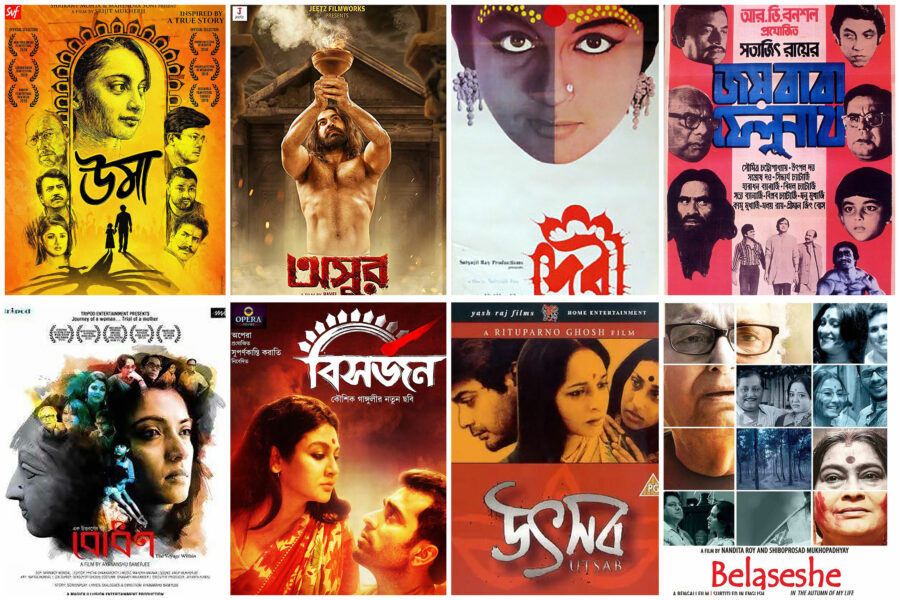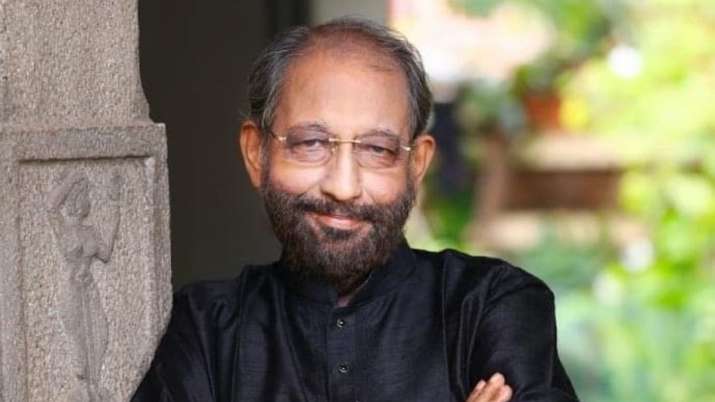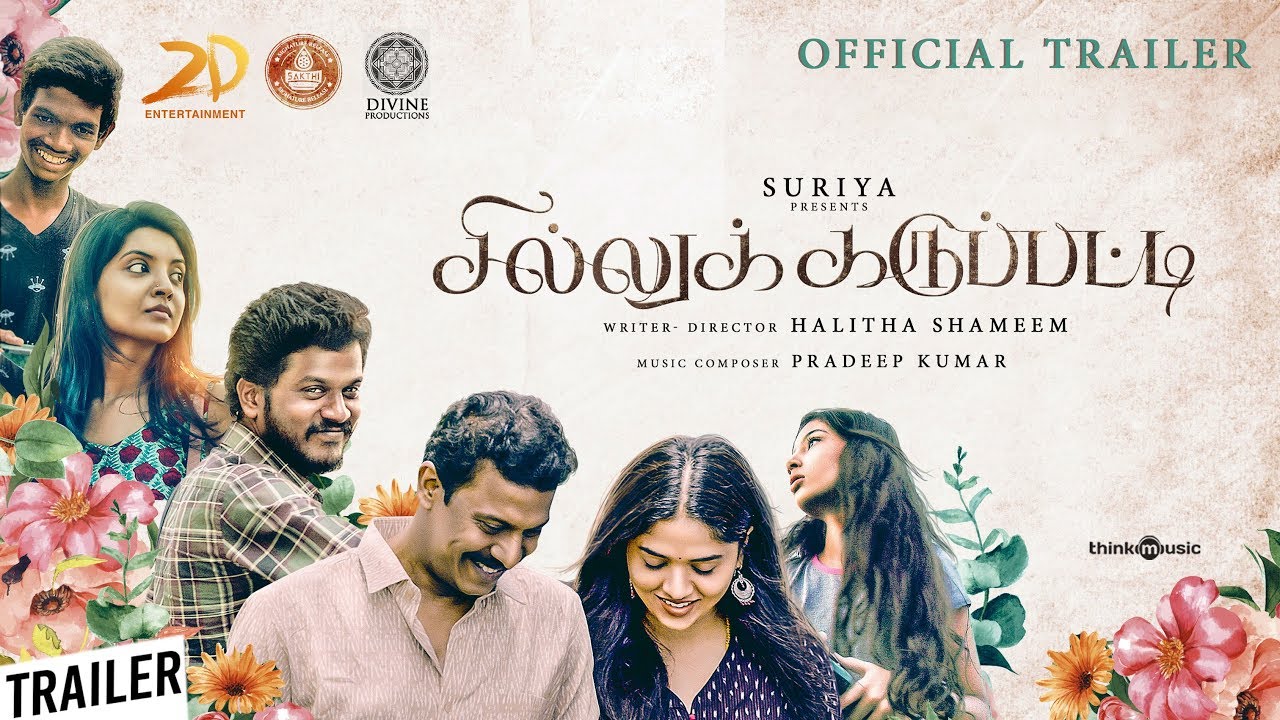For Bengalis, the four-day festival of Durga Puja (Durgapujo) is the most eagerly awaited time of the year. Besides the festivities, pandal hopping and food spree, this festival also brings home all the friends and family scattered across the country or the world and provides an opportunity for catching up with them.
Through the years, filmmakers such as the legendary Satyajit Ray, late Rituparna Ghosh, Kaushik Ganguly, Srijit Mukherji, and several others, have all celebrated the festival in a variety of ways in their cinema.
This Durgapujo, Silverscreen India has compiled a list of 10 Bengali films which have either used Durga Puja as backdrop, theme or the centre of the plot.
Utsab (2000)
Directed by Rituparna Ghosh, Utsab is a drama film featuring a star cast of actors Madhabi Mukherjee, Mamata Shankar, Rituparna Sengupta, Prasenjit Chatterjee, Pradip Mukherjee, Deepankar De, and Arpita Pal. Using Durgapujo as the backdrop, the Mukherjee family reunites. The film focuses on the emotional turmoil of the family members, each with their own individual problems to deal with, as talks begin for selling their ancestral home.
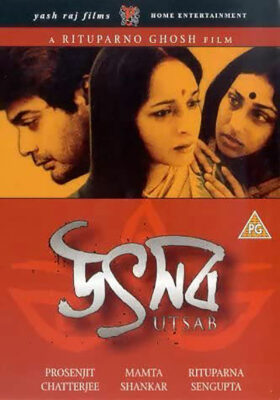
Debipaksha (2004)
Directed by Raja Sen and produced by Ashok Basu, Raja Sen, and Sumanta Chowdhury, Debipaksha stars late actor Soumitra Chatterjee, Sandhya Roy, Satabdi Roy, and Rituparna Sengupta in the lead, along with Koel Mallick, Kaushik Sen and Biplab Chatterjee in pivotal roles. Built around the five days of Durgapujo and using Durga as a metaphor, Debipaksha narrates the story of the triumph of good over evil when Haimanti (Sengupta), after being molested by a local goon, faces difficulties establishing a new life for herself away from her family and returns home to seek vengence.
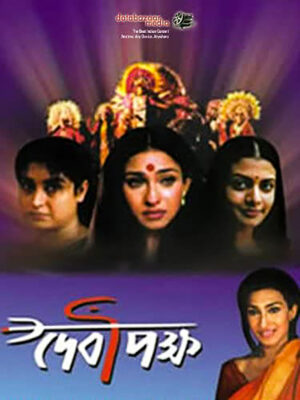
Devi (1960)
Directed by Ray, Devi is a drama film that stars legendary actor Sharmila Tagore and the late Soumitra Chatterjee. Based on a short story by Provatkumar Mukhopadhyay, Devi, meaning ‘Goddess’, pinpoints the religious bigotry and the patriarchy prevalent in society through Tagore’s character. Set in 19th century rural Bengal, the film shows the severe psychological toll that superstitions, religious beliefs and the patriarchy can have on a 17-year-old girl.
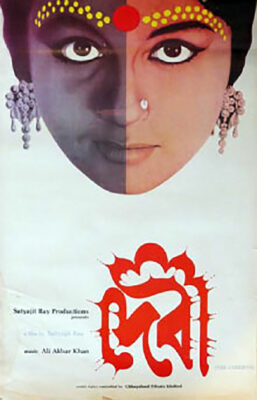
Antarmahal (2005)
Based on the short story Pratima by Bengali author Tarasankar Bandyopadhyay, Antarmahal is yet another Ghosh directorial. Starring Roopa Ganguly, Soha Ali Khan and Jackie Shroff in lead, and Abhishek Bachchan, Sumanta Mukherjee and Biswajit Chakraborty in pivotal roles, the film is set in Bengal at the end of 19th century. Shroff plays a rich and oppressive zamindar named Bhubaneswar Chowdhury, who marries another woman (Khan) after his first wife (Ganguly) fails to give him an heir. The story shows the extent the zamindar goes in his pursuit for a son, the ego struggle between the two wives and the zamindar’s plan to sculpt a unique clay idol of Goddess Durga.
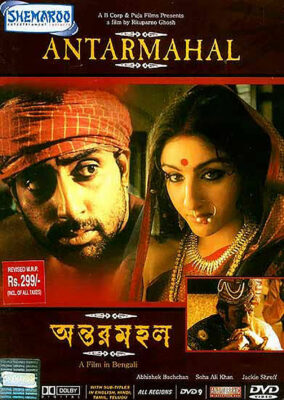
Bishorjon (2017)
Directed by Kaushik Ganguly, Bishorjon stars Abir Chatterjee and Bangladeshi actor Jaya Ahsan in the lead roles. The National award-winning film is a story of love between a Hindu widow belonging to Bangladesh (East Bengal) and a Muslim man from India (West Bengal) after she saves him from drowning in the Ichamati River, that separates the two Bengals, during the Durga bishorjon (idol immersing ceremony).
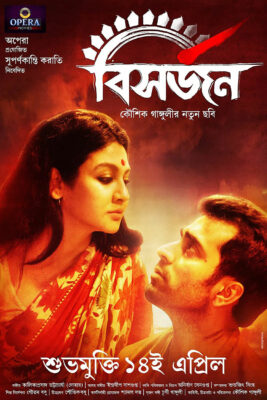
Joy Baba Felunath (1979)
This detective film is a Ray directorial that features an ensemble cast including late actors Soumitra Chatterjee and Santosh Dutta, Siddartha Chatterjee, and Utpal Dutt, amongst others. Joy Baba Felunath is an adaption of the Feluda novel and is a sequel to Sonar Kella. With the backdrop of Durgapujo and set in Varanasi, the film follows detective Feluda (Chatterjee) as he investigates a theft in the Ghoshal family.
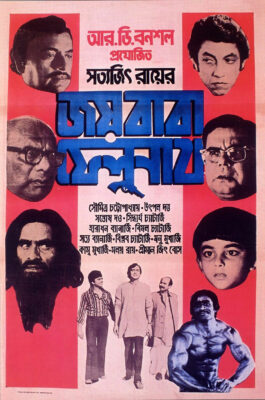
Uma (2018)
Directed by Srijit Mukherji, Uma stars Jisshu Sengupta and his daughter Sara Sengupta in the lead, with Anjan Dutt, Srabanti Chatterjee, Sayantika Banerjee, Anirban Bhattacharya, and Rudranil Ghosh playing pivotal roles. Based on true events surrounding the life and death of Evan Leversage from St George in Ontario, Canada, whose mother brought together the entire city to celebrate Christmas at an odd time of the year to fulfil his last wishes, Uma shows how a father (Sengupta) makes the entire city of Kolkata celebrate Durgapujo in March for his dying daughter.
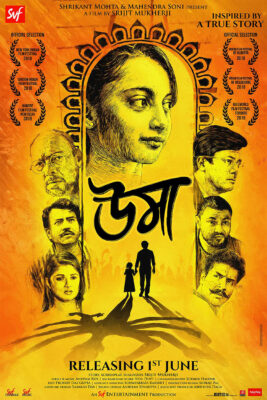
Bela Seshe (2015)
Directed by Nandita Roy and Shiboprosad Mukherjee, Bela Seshe stars late actors Soumitra Chatterjee and Swatilekha Sengupta as an elderly couple. During Durgapujo, when the entire family reunites at their ancestral home with their own emotional baggage, they are taken aback when 75-year-old Biswanath Majumdar (Soumitra Chatterjee) announces that he has decided to divorce his 66-year-old wife Arati (Swatilekha Sengupta). Rituparna Sengupta, Aparajita Adhya, Monami Ghosh, Indrani Dutta, Sohini Sengupta, Kharaj Mukherjee, Shankar Chakraborty, Anindya Chatterjee, Sujoy Prasad Chatterjee, Barun Chanda and Sohag Sen also play pivotal roles in the film.
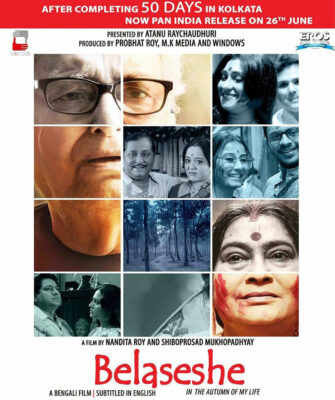
Bodhon (2015)
Written and directed by Ayananshu Banerjee, Bodhon is a drama film starring Arpita Pal, Joy Sengupta and Gouri Ghosh in the lead, along with Mamata Shankar, Prabir Das, Konineeca Banerjee, Shayoni Ghosh, Debshankar Haldar and late Soumitra Chatterjee in pivotal roles. Bodhon means the awakening of Goddess Durga which takes place on the sixth day: shahsthi. The film revolves around Ishani (Pal), a wife and mother in her mid-30s and tells of the different battles she faces.
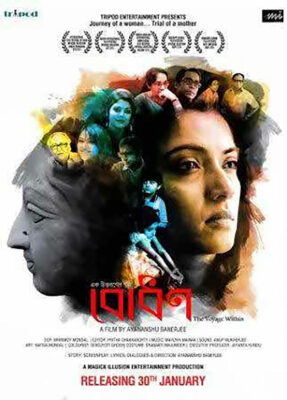
Asur (2020)
Written and directed by Pavel Bhattacharjee, Asur is an action-thriller. A tribute to the sculptor Ramkinkar Baij, the film explores the relationship between three friends through the making of the world’s largest Durga idol. The sculptor, who is one of the three friends, fails to understand the importance of relationships while giving his life to his art and his masterpiece.
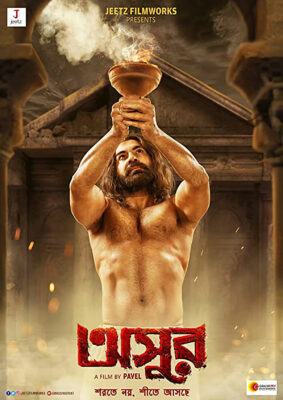
Ekannoborti- 51 Noye, Ek Onyanyo (2021)
Set for theatrical release on November 3, Ekannoborti- 51 Noye, Ek Onyanyo is yet another Bengali film that explores Durgapujo in its own way. Directed by Mainak Bhaumik, it is primarily a film about three generations: the thakuma (older) generation, the daughter generation, and then the millennial generation and how they all view Durgapujo. According to Bhaunik, this film is also “sort of a tribute” to multiple Rituparna Ghosh films, with a “major ode” to Utsab.
